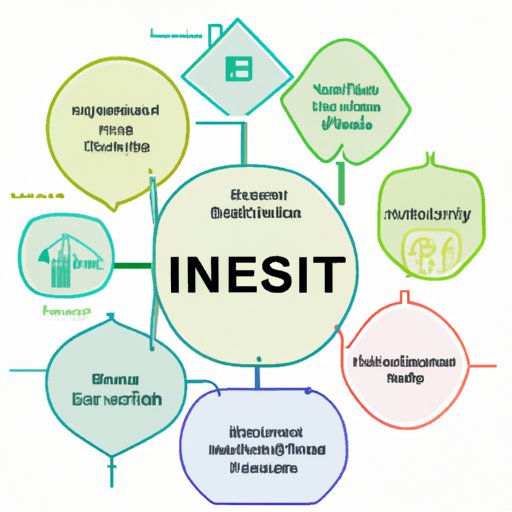Introduction
Net investment income is the total income generated from investments after deductions are taken into account. It’s an important concept for investors to understand in order to maximize their return on investments (ROI). In this article, we will explore what net investment income is, how to calculate it, strategies for maximizing it, common types of net investment income, and the tax implications associated with it.
How to Calculate Net Investment Income
Net investment income is calculated by subtracting relevant deductions and adjustments from the total gross investment income. To calculate net investment income, you must first determine your gross investment income. This includes income generated from interest, dividends, capital gains, rental income, royalties, and other income-producing investments.
Once you have determined your gross investment income, you can subtract any applicable deductions and adjustments. These include investment expenses such as management fees, advisory fees, taxes, and other costs associated with investing. Once all of these deductions and adjustments are subtracted, you can calculate your final net investment income.

Strategies for Maximizing Net Investment Income
There are several strategies investors can employ to maximize their net investment income. The most important strategy is to diversify your investments. By spreading your investments across different asset classes and sectors, you can reduce the risk of large losses and increase the potential for higher returns.
In addition to diversifying your investments, investors should also consider utilizing tax-advantaged accounts such as IRAs and 401(k)s. These accounts provide a range of tax benefits that can help reduce taxable income and maximize net investment income. Additionally, investors should strive to minimize costs such as management fees and transaction costs in order to maximize ROI.
Finally, investors should focus on investing in assets that are likely to appreciate over time. Investing in stocks, bonds, or real estate that has the potential to increase in value can help generate long-term returns and maximize net investment income.
Tax Implications of Net Investment Income
The tax implications of net investment income depend on the type of income it generates. Generally speaking, taxable income is subject to taxation while non-taxable income is not. Examples of taxable income include dividends, capital gains, and interest income. Non-taxable income includes Social Security benefits, municipal bond interest, and gifts.
Capital gains tax is another important consideration when it comes to net investment income. Capital gains tax is a tax imposed on the profits earned from the sale of an asset. Long-term capital gains are typically taxed at lower rates than short-term capital gains, so investors should be aware of the holding period when selling an asset.
Common Types of Net Investment Income
Net investment income can come from a variety of sources. The most common types of net investment income include interest income, dividend income, and rental income. Interest income is generated from investments such as bonds and certificates of deposit. Dividend income is the income received from owning stocks or mutual funds. Rental income is generated from rental properties.

Investing to Generate Net Investment Income
Investors can generate net investment income from a variety of investments. Stocks, bonds, and real estate are some of the most popular investments for generating income. Stocks offer the potential for dividend payments and capital gains. Bonds offer regular interest payments, while real estate can provide rental income and capital gains.

Advantages and Disadvantages of Net Investment Income
Net investment income offers both advantages and disadvantages. On the plus side, it can provide a steady stream of income and can potentially grow over time. Additionally, it can provide investors with tax benefits, depending on the type of income generated. On the downside, net investment income can be unpredictable and subject to market volatility.
Conclusion
Net investment income is the total income generated from investments after deductions and adjustments are taken into account. Investors can maximize net investment income by diversifying their investments, utilizing tax-advantaged accounts, minimizing costs, and investing in appreciating assets. Additionally, investors should be aware of the tax implications associated with net investment income and the common types of income it can generate. By understanding and utilizing these strategies, investors can maximize their net investment income and achieve their financial goals.
(Note: Is this article not meeting your expectations? Do you have knowledge or insights to share? Unlock new opportunities and expand your reach by joining our authors team. Click Registration to join us and share your expertise with our readers.)
